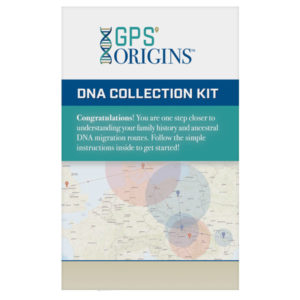HomeDNA™ Food & Pet Sensitivity Test
This convenient at-home test gives you detailed information from your DNA about factors that may be causing discomfort from the inside out.
Get actionable, reliable answers from your DNA.
Do you ever get an upset stomach, gas, diarrhea, or feel sleepy after eating? Do you suddenly have itchy eyes or difficulty breathing and suspect you might be sensitive to your new kitten’s dander? In your search for answers and solutions for relief, the HomeDNA Food & Pet Sensitivity DNA test is a great place to start.
The personalised report from our DNA test tells you whether you are genetically more sensitive or less sensitive to these specific irritants: gluten, lactose, cow-milk protein, egg, peanut, pet dander, histamine, and more. The pet and food sensitivity test gives you detailed information from your DNA about factors that may be causing discomfort from the inside out.
Kit Contents:
- Easy-to-follow instructions
- Cheek swabs for DNA collection
- Postage-paid envelope for returning samples to us
Results Back:
- 6 weeks from receipt of samples at the lab
About This Test
You collect your own DNA samples quickly and easily at home using simple cheek swabs, send them back to us, and we do the rest. With this scientifically-based analysis, specific genes connected to the most common irritants are analysed in our accredited lab. Results of your test are posted to your secure online account just 6 weeks after testing begins, so you get your answers fast!
Results include your genetic predisposition for sensitivity to:
- Gluten—Gluten is a protein in wheat, barley, and rye. Humans do not have the enzymes to break down gluten, leaving tiny particles in the digestive tract that may cause sensitivities for certain individuals
- Lactose—Lactose is a sugar found in animal-sourced milk and dairy products. Certain genetic markers may make it more likely to have difficulty digesting foods containing lactose
- Cow Milk Protein—Milk is made up of water, fat, lactose, minerals, and protein. Sensitivity to milk protein is not the same as lactose sensitivity, but it is one of the most common ones for children
- Egg—Egg sensitivities are very common, and many people are sensitive to the white part, called albumin, versus the yolk
- Peanut—Peanut sensitivity is extremely common and is often passed down through generations
- Other Foods—Many people are sensitive to other foods that are different from the ones included elsewhere in this test; they may include tree nuts, soy, corn, yeast, fish, and shellfish
- Pet Dander—Pet dander consists of tiny particles of skin shed from animals that have hair, fur, or feathers. Certain genetic markers may make an individual more sensitive to contact with dander
- Histamine—Histamine is a natural compound that may be found in foods that are aged and fermented, red wine, and more. Some people have an inability to break down excess histamine, which can cause sensitivities
In addition to giving conclusions about your sensitivity to individual irritants, the report also provides comprehensive and detailed diet, lifestyle, and supplement tips based on your results, so you can start making proactive changes right away.
Relief is in sight—you really can lead a more comfortable life.
View Sample Report
This product is not intended to diagnose, treat, cure, or prevent any disease. Please note this is not an allergy test: to confirm allergies, consult your medical provider. The report is provided for educational and informational purposes only. Results contain information only from genes and do not include environmental factors that may cause or aggravate symptoms.
Gain new insights, improve your quality of life, and have fun making new discoveries.
Contact Us
Have questions or need assistance? Contact our team.
DDC
1st Floor, WeWork
184 Shepherds Bush Road
London
W6 7NL
Leave A Message


